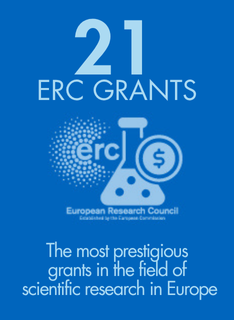The Digital Society is a concept that describes a society in which digital technology plays an extremely relevant role in all aspects of our daily lives, such as social relationships, political and economic processes, cultural practices, and even the formation of our personal identity.
In the Digital Society, people are increasingly connected through electronic devices and online platforms, resulting in new forms of social interaction, communication, and civic participation, and influencing the way we consume information.
Moreover, the Digital Society is characterized by the massive production, transmission, and storage of digital data used for various purposes, such as shaping marketing strategies, personalizing online services, and developing technological innovations.
The Master's in Digital Society offers the opportunity to understand and learn how to deal with the complex social, political, economic, and ethical aspects of the Digital Society, providing the fundamental skills to successfully navigate this constantly evolving environment.
Interdisciplinary nature and transfer of updated knowledge and concepts about digital society and culture;
Provides the skills necessary for evaluating and managing the social, cultural, and communicative aspects of digital transformation initiatives;
Encourages critical thinking on the addressed topics, namely: Big Data, Society and Culture, Science Communication, Construction of Digital Knowledge, Digital Entertainment, Digital Information Sources, and National and European Legislation on Data Use;
Applications 2025/26
1st Phase: FEB. 3 to Mar. 22
2nd Phase: JUN. 2 to JUL. 18
Vacancies: 30
Duration: 2 years
Format: On-site, Daytime
Language: Portuguese
Course Coordinator: Paula Urze, msd.coordenador@fct.unl.pt
Academic division: mestrados@fct.unl.pt
The Master's in Digital Society is supported by the excellent research conducted in the Department of Social Sciences and the CIUHCT Research Centers at NOVA FCT.
The faculty associated with this Master’s program carries out research in the field of Social Sciences, namely in Social Studies of Science and Technology and History and Philosophy of Science and Technology.
Tuition fee - Portuguese students: 1250€ / year
Tuition fee - Foreign students: 7000€ / year
MASTER'S ACCEPTANCE FEE: (in Portuguese only)
Accepted candidates must pay (within a maximum of 7 consecutive days from the placement date) a non-refundable fee of 100 euros, which will be deducted from the total tuition fee after enrollment.
Failure to pay within this deadline results in the automatic exclusion of the candidate. No exceptions or late payments are accepted. Any payment made after the deadline will not be refunded, and the candidate will remain excluded.
The NOVA University Lisbon reinforces its commitment to equity in higher education by awarding scholarships that promote inclusion and equal opportunities.
More information here.
The Department of Applied Social Sciences (DCSA) at NOVA FCT provides teaching and research in areas outside of the fundamental sciences and engineering, thus offering our students a structured education in the field of applied social sciences.
More info




